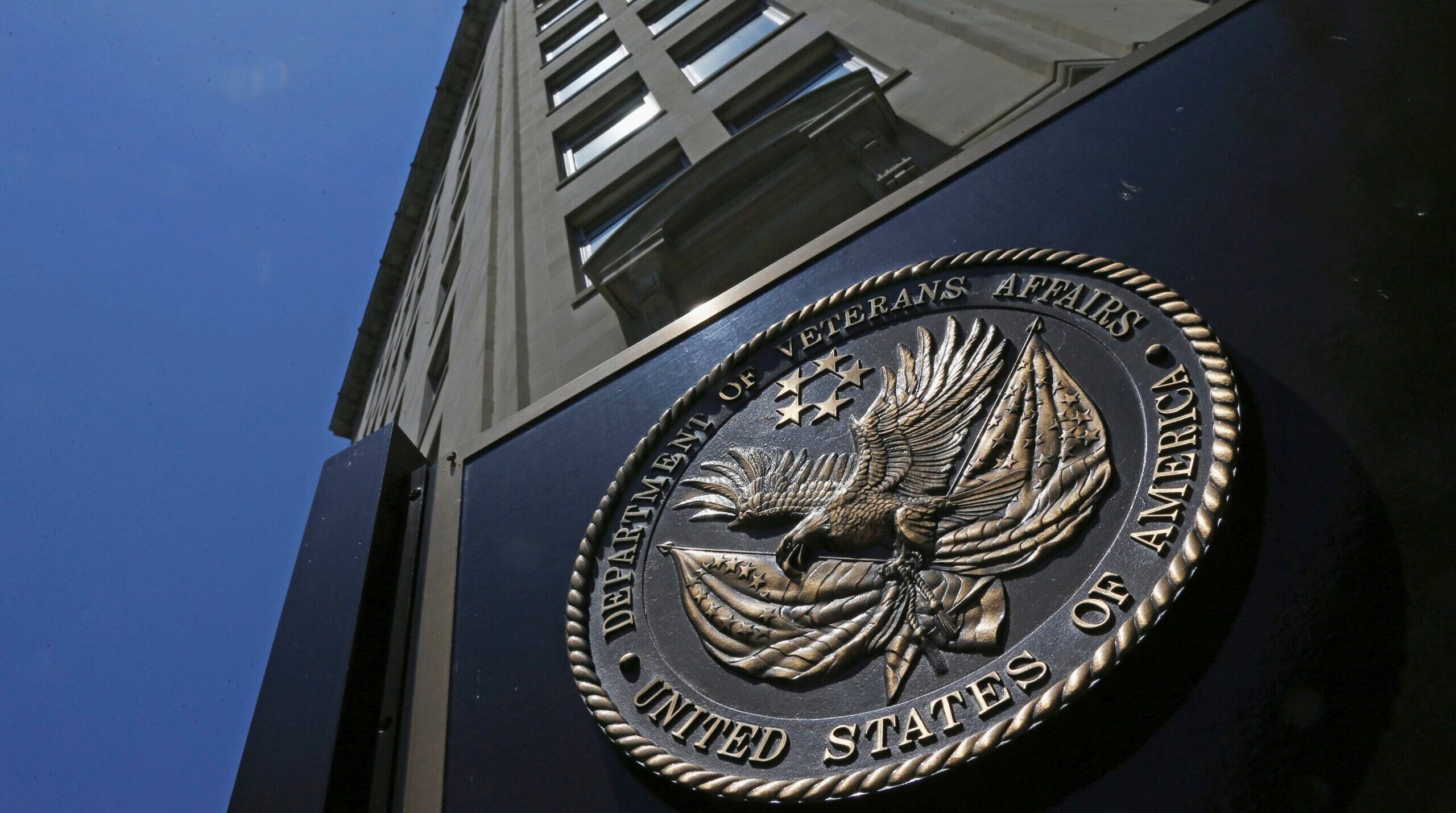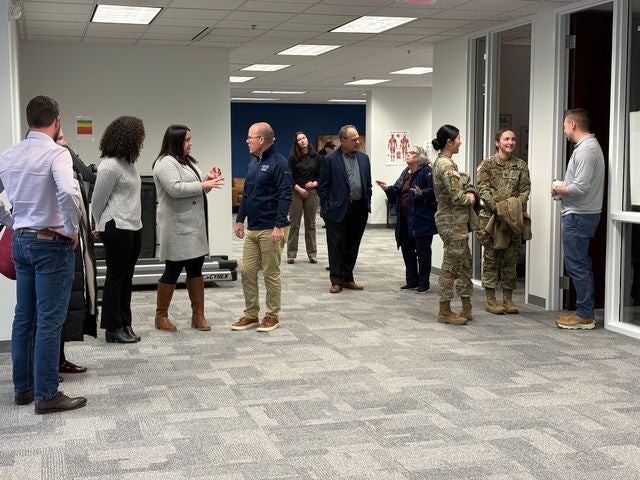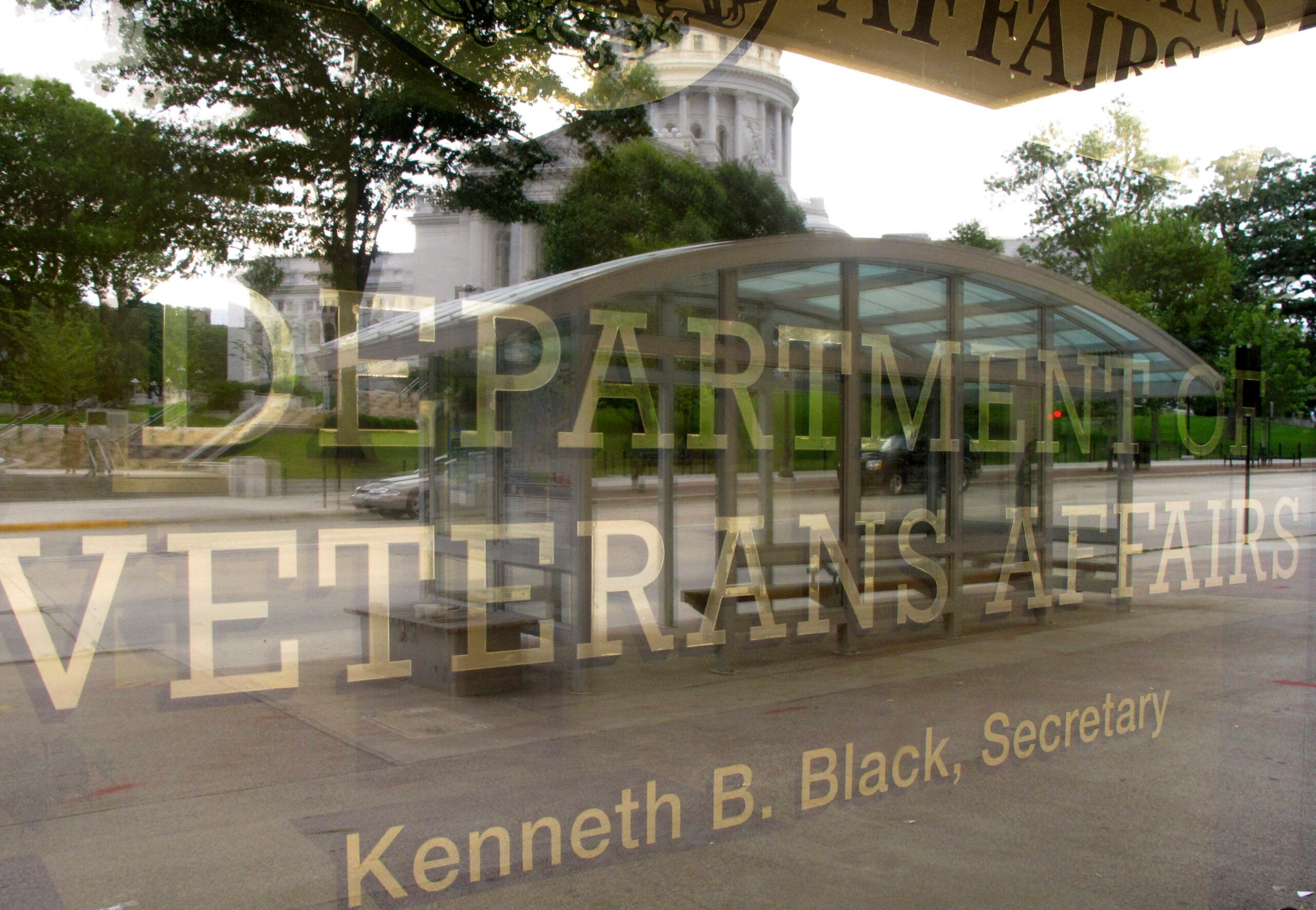In President Trump’s proposed skinny budget for the 2026 fiscal year, funding for the Department of Veterans Affairs would increase by 17 percent.
The proposal comes after the federal VA announced a goal to decrease its workforce by 15 percent due to an initiative from the Department of Government Efficiency, or DOGE.
According to NPR, 25 percent of VA staff are veterans. Rob Larson is the legislative committee chairperson of the County and Tribal Veterans Service Officer Association of Wisconsin. He has been a Wood County veteran service officer for more than 20 years. Before that, he served in the Air Force and the National Guard.
News with a little more humanity
WPR’s “Wisconsin Today” newsletter keeps you connected to the state you love without feeling overwhelmed. No paywall. No agenda. No corporate filter.
Larson told WPR’s “Wisconsin Today” that Larson said the VA he works for receives no federal funds.
“They are funded by local government and a small grant from the state,” Larson said. “So thanks to the counties and tribes for their continued support of us. Pretty much anything that deals with veterans, we can try to assist.”
Larson said the VA’s health and disability benefits have been a help to him over the years. But the system can be hard to navigate.
“In most cases, veterans come into our office for one thing that might be as simple as an application for a veterans identifier on their driver’s license,” Larson said. “Then we identify that, ‘Oh, you were exposed to Agent Orange after Vietnam in Guam. Do you have any of these disabilities?’ And all of a sudden, their service connected for their cancer, and the VA is paying for their treatment. They come in for one thing, and hopefully we take the time to see if there’s anything else that you may be entitled to.”
“And we’re free,” he added. “We cannot charge for any of our services other than the property taxes in the county that they already paid.”
Larson talked with host Kate Archer Kent about how federal changes to VA staffing and funding could affect his work.
The following was edited for clarity and brevity.
Kate Archer Kent: President Trump’s skinny budget blueprint this month calls for an increase for medical care and Electronic Health Records Modernization, or EHRM, and a decrease for IT systems and general administration. How would your organization feel about these changes? What do you see there?
Rock Larson: You’re always skeptical about change, but where they’re putting the money in benefits and especially healthcare is exciting. We’re looking forward to that and definitely the homelessness initiative.
Everybody should have concerns about the general cuts. Where there’s efficiencies to be made, I guess every American should be in favor of that. It’s just, we need to make sure that we’re not getting rid of the wheat as we get rid of the chaff. It needs to be investigated, and properly, so that the timeliness and quality of veterans benefits is still there. Timeliness is a huge issue with disability claims. Some may take just a couple days, but most of them take several months or more to go through the process.
KAK: Is there anything you think the federal government would consider “non-essential” that would hurt veterans to lose?
RL: I don’t know what exactly they contract out and what they employ in-house, because there’s a lot of lawns to mow there. I don’t know if they have a service, or if that would be something that would be considered non-essential that could be contracted out at a savings. And that’s where we hope that we’ll take a good, hard look at what can we do outside of the VA. But there are also people that schedule. There’s release-of-information people who I will send a release from the veteran to the hospital. And they will then print out their medical records, and I can review them and use that in support for their disability claims.
KAK: What message have you been sending to Wisconsin’s congressional delegation?
RL: There’s no specifics yet to discuss concerns over. We had a presentation video conference from the regional office director last week. And yesterday, I was in a meeting with the Tomah VA hospital director. Both of them are not really concerned. They’re still trying. They’re going to do the best they can with the resources they have, and they’re awaiting further guidance on any of these reorganization efforts from the central office in Washington.
KAK: You feel you have their ear, though? That they’re hearing you?
RL: The directors are and the legislators are, yes.







